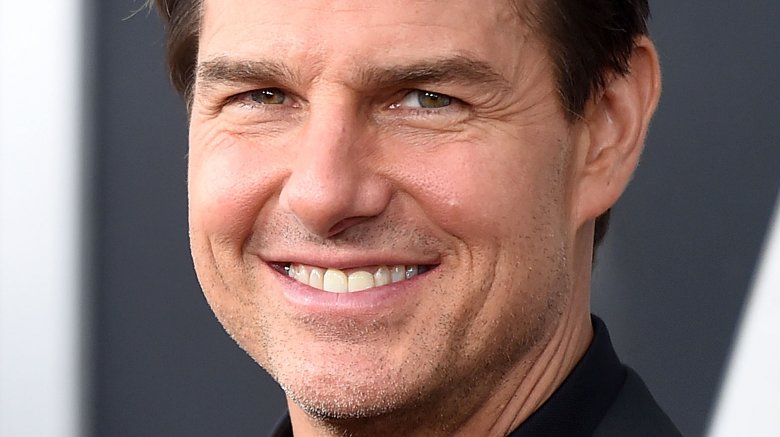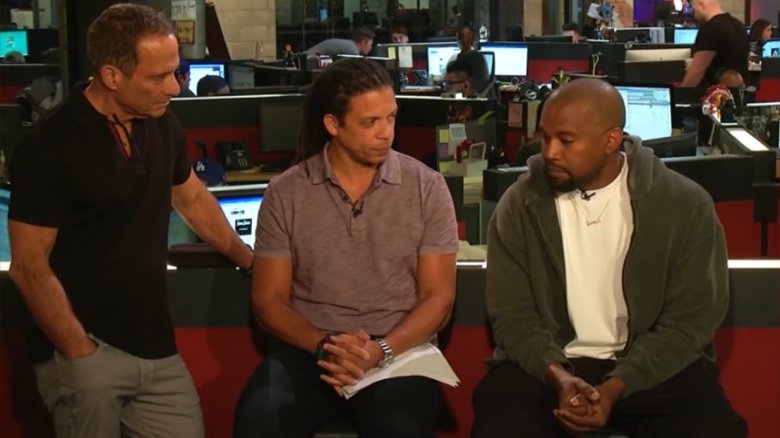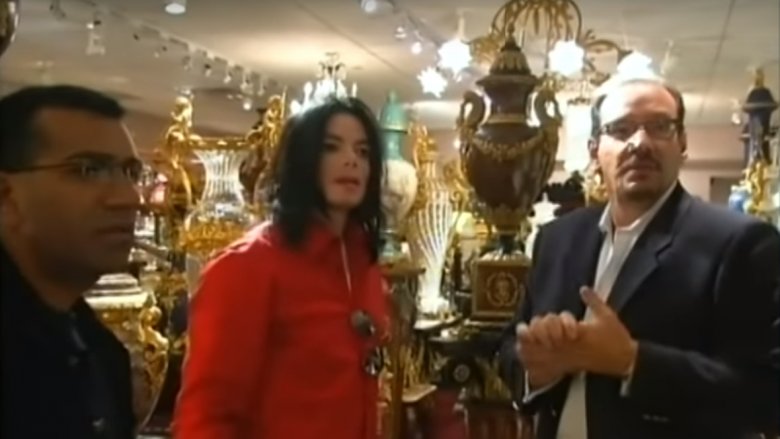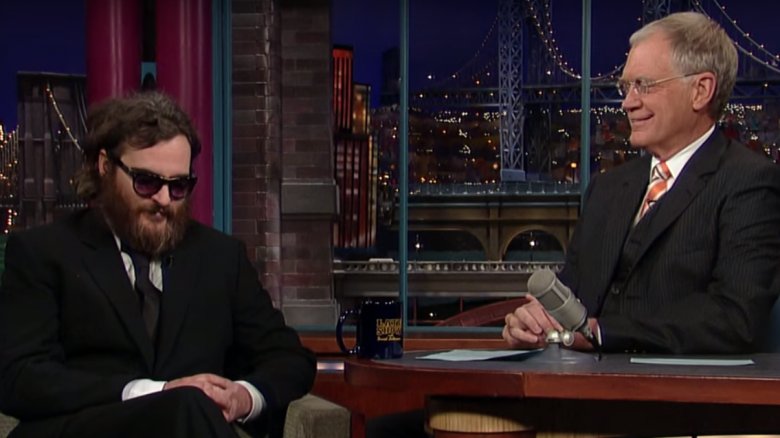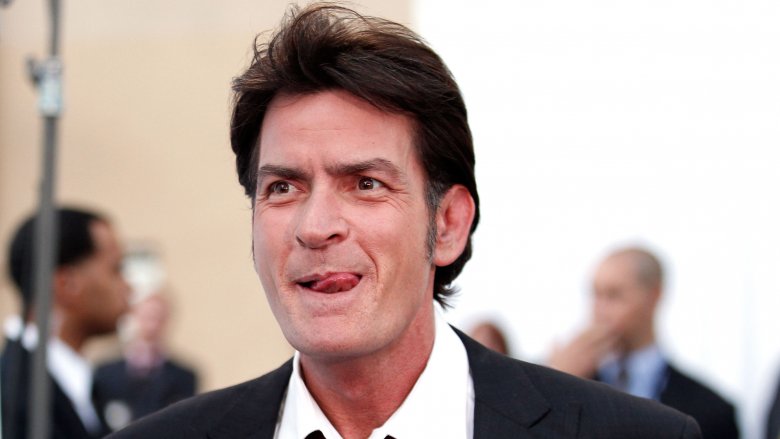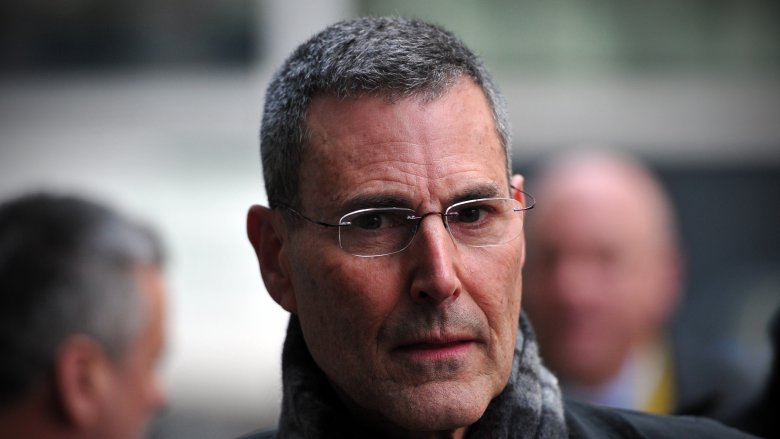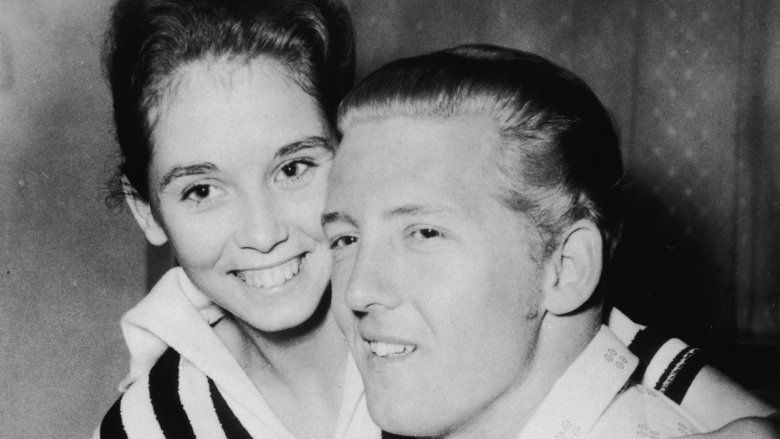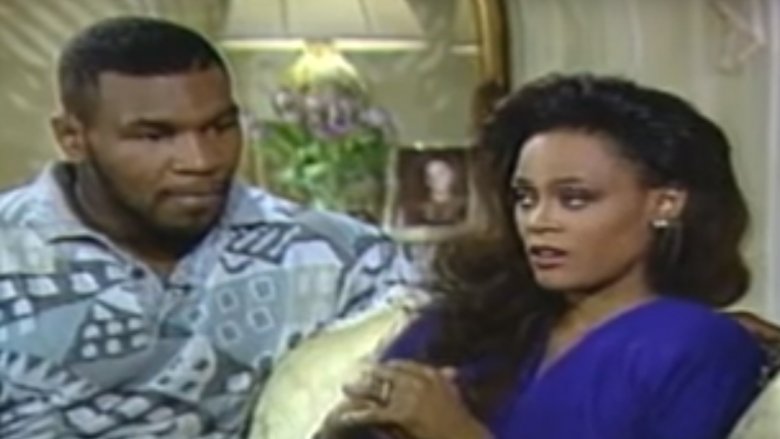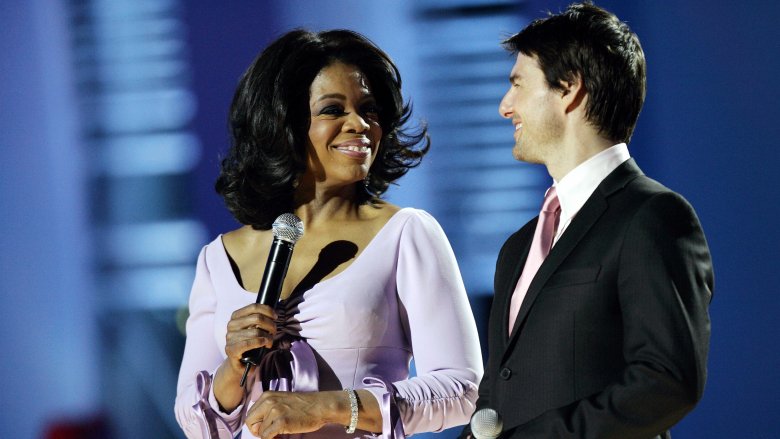Interviews That Changed A Celeb's Career Forever
We've all said things we regret. That voice in our heads wasn't strong enough or quick enough to stop us from making a mistake. For regular people, mistakes of this kind can be mighty embarrassing, but they aren't typically life changing. Well, the celebrity world isn't as forgiving as ours. In Hollywood, when a star says or does something they regret, there's a good chance it was caught on camera.
While many celebs are comfortable with cameras in their faces, interviewers sometimes try to take them out of their comfort zones to get natural and unrehearsed reactions and answers out of them. It's here, in the unscripted zone, that mistakes are made.
Over the years, certain interviews have completely changed the way the public views celebrities. We've seen interviews that raise mental health concerns about a celebrity or totally assassinate their character. We've also seen interviews that damage celebrity careers and those that utterly destroy them. But it's not all doom and gloom. Some celebs benefit greatly from interviews, even those that may have seemed catastrophic at the time.
Here are some interviews that changed a celeb's career forever.
Kanye West goes south on TMZ
It remains to be seen how much Kanye West's appearance on TMZ Live will impact his career. It may never impact his record sales, but one thing is certain: the rapper's rambling appearance on the program has forever changed the way he is perceived, particularly within the black community. Among other strange moments in the bizarre interview, the primary takeaway from Kanye's words was when he claimed that 400 years of slavery "sounds like a choice."
The ripples from this comment didn't take long to hit someone. On-site TMZ reporter Van Lathan quickly fired back. "While you are making music and being an artist and living the life that you've earned by being a genius, the rest of us in society have to deal with these threats to our lives," he said. "We have to deal with the marginalization that has come from the 400 years of slavery. ... You've got to be responsible. Your voice is too big."
But the backlash didn't end there. Many black celebrities criticized Kanye's stance, from Will.I.Am to Ava DuVernay to Kobe Bryant, with few defending him. Though West insists that he was misinterpreted, he also refused to back down. In the end, many people are left wondering what happened to the rapper who once used the live NBC program, "A Concert for Hurricane Relief," to say that "George Bush doesn't care about black people."
Martin Bashir and Living with Michael Jackson
Though Michael Jackson is regularly considered one of the greatest entertainers to ever live, his off-stage persona has been the cause of much discussion and debate, particularly his relationship with children. Exacerbating the rumors and sexual assault allegations filed against Jackson in 1993 was the 2003 televised documentary, Living with Michael Jackson.
In this extended interview, journalist Martin Bashir converses with Jackson over the course of eight months. Throughout the piece, several curious moments jump out, including the strange revelation that Jackson let visiting children sleep in his bed. In fact, Jackson's relationship with children is a near-constant theme throughout the film, an issue that Jackson did not take lightly after watching the finished product.
In an official complaint (via The Guardian), Jackson alleged that Bashir's documentary contained "sensationalized innuendo" intended "to infer sexual impropriety." Jackson then tried to show what had been left out of the interview by releasing his own version of the interview, but the damage had already been done. In the courtroom of public opinion, Bashir's interview had, according to Entertainment Weekly, turned Jackson "into a punchline," causing Jackson to withdraw himself from the spotlight until his untimely death.
Joaquin Phoenix risks it all on David Letterman
Fans of acclaimed actor Joaquin Phoenix worried that they'd had seen the last of the actor after a now-famous 2009 appearance on The Late Show with David Letterman. He showed up unkempt and disinterested, giving mostly single-word answers and declaring that his acting career was at an end.
Though it proved to be a hoax for his role in the fake documentary, I'm Still Here, the interview left a lasting impression on fans. In fact, Phoenix suggests that there was some real overlap between the character and the man. "Certainly, that was a period when things felt very stressful for me. I wanted out. I wanted my f***ing life back," he said in an interview with The Guardian. "So, yeah, there was a bit of crossover there."
For Phoenix, doing the film was a big risk. Still, he admitted in an interview with Playboy (via The Daily Mail) that the risk associated with the role "was a liberating experience" for him. "The safety net wasn't there," he said. "Or maybe the safety net was there, but it was old, worn, full of holes and probably going to collapse." It didn't collapse, but it did play a part. For an actor compared with some of the greatest working today, it's strange that much of what fans know about the spotlight-averse Phoenix, is derived from this brief and bizarre interview.
Winning with Charlie Sheen
Charlie Sheen did several interviews during his notorious and public meltdown in 2011, but his chat with Andrea Canning on Good Morning America was one of the most memorable. Though now Sheen blames his erratic behavior on "accidental roid rage," few fans will ever forget that period in the actor's life. From using expressions like "tiger blood" to telling tales of excessive partying and drug use, Sheen left fans not only worried about his career but his general safety as well.
Unfortunately for Sheen, the writing on the wall would prove prophetic. In 2015, he appeared on Today and admitted to having been diagnosed as HIV positive. While the disease and the admission led to Sheen taking a reduced role in the public eye, it was his antics prior to that appearance that hurt his career the most.
According to 2018 court documents acquired by People, Sheen filed for child support modifications because he has "been unable to find steady work, and [has] been blacklisted from many aspects of the entertainment industry."
Uri Geller is humiliated on Johnny Carson
When magician and illusionist Uri Geller was brought on The Tonight Show Starring Johnny Carson in 1973, he was unaware that he was being set up to fail. After booking Geller, the show's producers called up James Randi to help them "prevent any trickery." So Randi did what was asked of him. He designed a setup that would be impossible for Geller to unfairly manipulate. If the illusionist was to create magic on the set, it would be true magic. Sadly, there was no magic to be had. Instead, Geller balked at the unfamiliar props, insisting that he "didn't feel strong."
According to an interview with The New York Times, Geller was mortified with the appearance. "I sat there for 22 minutes, humiliated," he said. "I went back to my hotel, devastated. I was about to pack up the next day and go back to Tel Aviv. I thought, That's it — I'm destroyed."
Yet, while the show was an unmitigated disaster, and Geller certainly looked foolish, his career did not dissolve as he feared. In fact, it did the exact opposite: it blossomed. "That Johnny Carson show made Uri Geller," he claimed. Incredibly, by failing so spectacularly and so publicly, Geller appeared more credible to the public. Since failure was now an option, Geller's successes, it seemed, were all the more amazing.
Extinguishing Jerry Lee Lewis' great balls of fire
When Jerry Lee Lewis arrived in London in 1958, he brought along his new wife, Myra Gale Brown. As the press bombarded the superstar with questions, it was Brown who gave them what they wanted, and all she did was answer one simple question.
"When a reporter asked me, 'Who are you?,' I was the one who let the big ol' cat out of the bag," Brown said in an interview with Cuepoint. "It was a perfect storm — it couldn't have happened at a worse time, at a worse place. Everything just came together and a major explosion happened."
The issue with Brown's answering that she was his wife was that Lewis was already married, they were cousins, and, most critically, she was only 13-years old at the time. This gave the press and the public all the ammunition they needed to roast Lewis. "They were looking for a place to stick the knife into rock & roll," Brown said. "And Jerry gave it to them — well, I did, I opened my mouth."
According to Kris Kristofferson, who was in England at the same time, Lewis' career unfurled right away. "I was in England when they ran him out of the country," he said. "He went immediately from being a guy who made $10,000 a night to a guy who didn't make $100 a night."
Robin Givens knocks out Mike Tyson
Though there had been claims of domestic abuse in the Mike Tyson household prior to the 1988 Barbara Walters 20/20 interview with Robin Givens and Mike Tyson, it was this chat that let the world in on some of the issues at home and in the personal life of Tyson. As Walters probed for the details of their private life, Tyson awkwardly watched on as Givens recounted living in fear of Tyson and how he deals with rage all the time.
In the interview, Givens described her husband as "scary" and "intimidating," while Tyson sat stoically, almost watching the words as they came out of her mouth. "There's a time when he cannot control his temper and that's frightening to me," she said. "He gets out of control. Throwing, screaming ... He shakes. He pushes. He swings."
Though Tyson remained calm on set, Time reports that the boxer flew into a rage following the interview. Two days later, police were called to the Tyson home in response to a new domestic abuse allegation. According to The New York Post (via The New York Times), though Tyson had destroyed items in the home, there was "no physical evidence of injury to anyone was observed." Givens filed for divorce a week later. Tyson's boxing career would continue on and his public life would continue to be marked with serious controversies, but the general public perception was formed during that 20/20 interview in 1988.
Tom Cruise and that infamous couch
Tom Cruise is no stranger to interviews that impact how he is seen by the public, but perhaps no one interview had an influence on public perception like the famous Oprah appearance. It was during this strange 2005 interview that Cruise declared his love for actress Katie Holmes. But Cruise didn't just use his words. No. He jumped on the couch like a misbehaving puppy and yelled it.
Though we may not have known it then, this moment would define Cruise for us. Even the host saw it at the time, as she half-jokingly declared, "He's gone. He's gone. The boy is gone." According to The Huffington Post, this moment also marked Cruise's first step away from being considered a "heartthrob" and took him a step closer to the weird and curious actor that many began to see him as.
While Cruise and his relationship to Scientology would prove more salacious and provocative than his relationship with Holmes over the years, but for many fans, when they picture Cruise, they still see the maniacal man standing on the couch.

